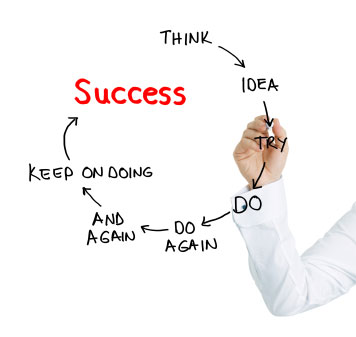In a recent article, Bob Sullo suggested that today’s world demands an expanded set of educational goals:
- To help students develop their individual talents and abilities
- To help students reach their potential
- To help students develop into happy, responsible members of their communities
- To help students understand and appreciate the interconnectedness of all people
- To help students respect the environment
- To help students create and live a meaningful life

It’s easy to nod in agreement with such laudable goals. Given such diffuse and abstract targets, the first question that comes to my mind is, “Where do we begin?” Because there is much to learn about success from failure, there may much to learn about our education system from its dropouts.
Thomas Edison, Steve Jobs, Bill Gates, Mark Zuckerberg, and Jim Clark—all guys who just couldn’t cut it. Clark dropped out of high school and joined the Navy on his way to founding Netscape and becoming the first Internet billionaire. Neither Gates nor Zuckerberg made it to Harvard commencement. Jobs, the unambitious sloth, had just one semester of college. Edison takes the dropout cake: just three months of school. In his lifetime! Teachers complained that he asked too many questions and they found his curiosity a challenge to classroom management. “The Man Who Made the Twentieth Century Possible” was essentially homeschooled.
Is there something inherent in the nature of these innovative geniuses that didn’t cotton to organized schooling? Or is there something inherent in the nature of organized schooling that doesn’t accommodate radically innovative thinkers? Surely, one purpose of education is to identify and nurture the capacity for creativity and problem solving. But school was an impediment to the creative genius of these brilliant dropouts. These big-picture thinkers just couldn’t find adequate nourishment from a one-size-fits-all notion of education.
This alienation is not unique to society’s technological innovators. The modern business landscape is also populated by examples of “dropout-to-success” stories. Richard Branson, Dave Thomas, and John D. Rockefeller – just a few self-made titans of industry – never completed high school. The same goes for countless cultural living landmarks, thought leaders, public officials, and philanthropists. Without digging too deep, this list includes Walt Disney, Jay-Z, Brooke Astor, Rosa Parks, Milton Hershey, Woody Guthrie, Samuel Gompers and more U.S. Senators and Representatives than you’d ever imagine. (President Abraham Lincoln, anyone?) No less an eminence grise than Bruce Springsteen, the poet laureate of a wide swath of America, barely made it through the twelfth grade.
The contributions made by these individuals are immeasurable and have undoubtedly set off a butterfly effect of social, technological, and artistic evolution that will endure far beyond their lifetimes. But they did not, or could not, find the empowerment, encouragement or inspiration for their lives’ work in secondary or advanced education. Why not? And how does that answer connect to the purpose of education, and how we may be falling short of the mark?
Disgruntled former customers are valuable sources of insight when a retailer wants to improve customer service, because we often get more helpful feedback from a dissatisfied customer than from a happy camper. Likewise, an exploration of the successes and failures of our educational structure might best begin with an exit interview its high-achieving quitters. Their feedback may help us figure out how to more successfully educate the geniuses among us.
